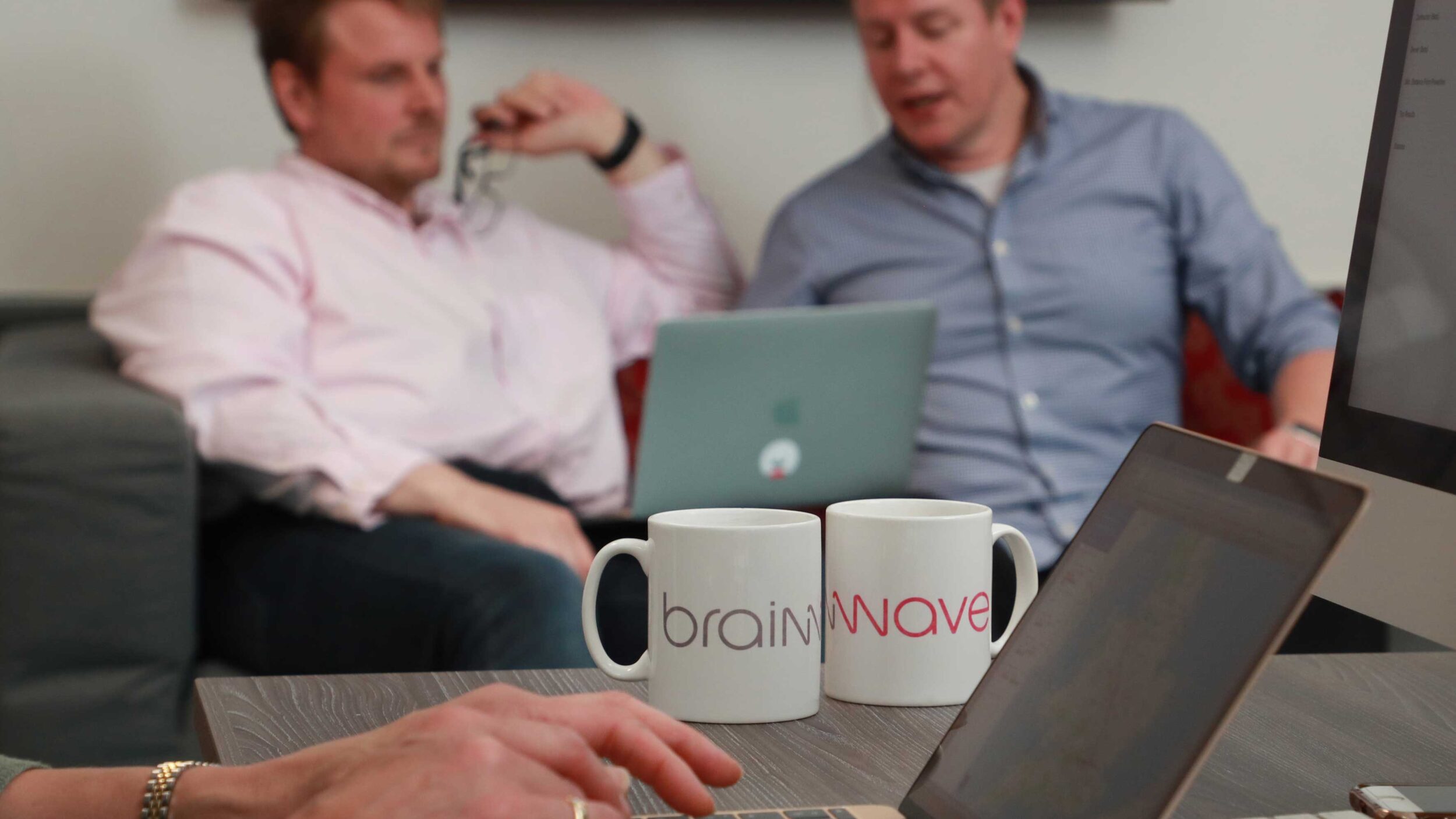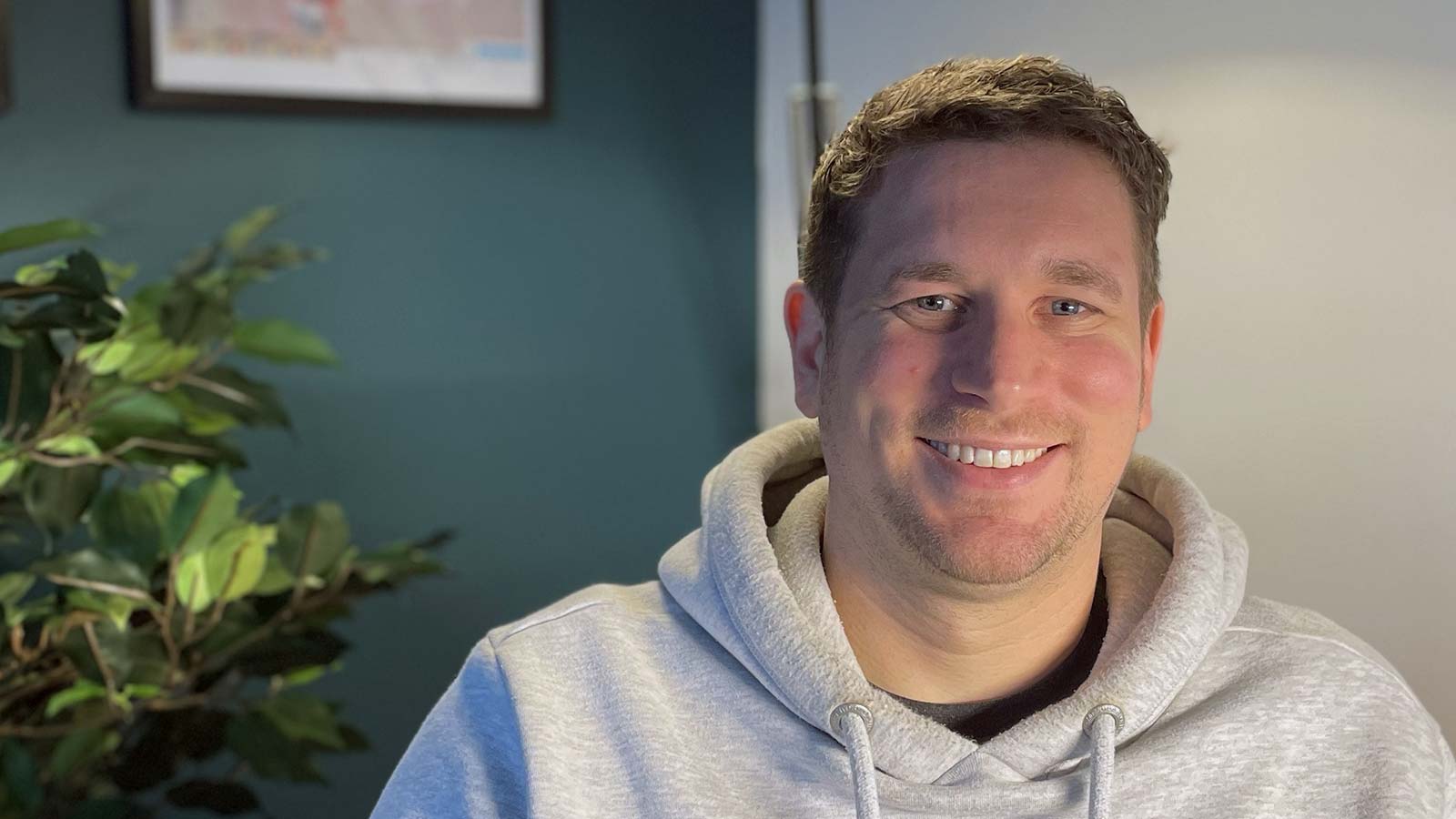This website uses cookies so that we can provide you with the best user experience possible. Cookie information is stored in your browser and performs functions such as recognising you when you return to our website and helping our team to understand which sections of the website you find most interesting and useful.
The Tragic & Untimely Death of Passive Innovation
Estimated reading time: 6 minutes, 36 seconds

I don’t particularly want to join the slew of articles that have been written about life during lockdown, or how Coronavirus has affected our world, but I have seen one curious outcome from Brainnwave’s move from largely office-based to 100% remote working. (The fact that it was a global pandemic that led to the change is irrelevant.)
This is a somewhat difficult concept to pin down, but I’ve been calling it “passive innovation” in the absence of a better name. Others may call it “hallway conversations” but we didn’t really have many hallways in our office. Allow me to explain what I’m referring to.
You’re working in your office, and you walk past somebody’s desk on the way to make a cup of coffee.
They’re having a conversation with a colleague about something that you’ve got a vested interest in (and a valid opinion on), but this wasn’t a formal meeting so you didn’t get any sort of heads-up.
You’re welcome to chime in with your tuppence-worth in passing and all three of you decide that it could be something worth taking a look at further.
Had you not walked by and chimed in, the other two people may not have been able to make that realization or may have gone in another direction.
Another situation might be when some of your office are having lunch and chatting about something you’d seen on the website of another company – it strikes a chord with some of the staff and the boss overhears and thinks it might be a good idea to push forward.
Something is actioned the following week, and your product or service is improved as a result.
These sort of small iterations in a product or service that your organization offers may never have happened – or may have been completely overlooked.
So what I’m getting at is the serendipitously overheard conversations, the off-the-cuff chats, the briefly requested opinions and feedback, or just the open discussion of work with colleagues during the day, whether at your desk, in the corridor, at lunch, next to the coffee machine, while playing ping pong, whatever.
The sort of thing that can lead to new or expanded features, a change in product offering or an improvement in staff welfare. Small ideas that don’t necessarily get mentioned in formal meetings, or things that (while existing in an unrefined or undeveloped state) don’t necessarily warrant a full call or meeting.
This sort of thing has been unintentionally filtered out of our daily work.
I’d like to be able to ask a colleague what they think of something without needing to schedule a call or hope they’re at their desk.
I’d like to be able to speak to people in the office without the minor dread of microphone, screen-sharing and sketchy connection challenges.
I’d like to have the informal discussions with the boss about how our business development is going, since it might lead to a thought about how I can help push things forward.
Those who have worked remotely may have experienced something similar to this prior to the world of “lockdown” and I think some companies have tried to solve the issue in different ways; to date, though, I’ve not heard of any solution which I feel fills the gap.
An always-on chat or video-call channel is (amongst other technical challenges) probably considered too intrusive to be a viable solution.
A regular coffee-break type of meeting is nice socially, but can feel like we are maybe trying too hard to force this type of interaction at times.
Constant discussion on messaging platforms is good, but tends to be more distracting for everyone, and often descends into irrelevance.
Quick calls for one-to-ones can help when trying to get to the bottom of something but, again, without getting too many people on the call, you’re missing the ability to quickly ask somebody’s opinion or have them chime in with something you maybe didn’t expect.
At Brainnwave we are trying a number of things to both promote passive innovation and also to help our team feel more connected.
We have a weekly Friday coffee break in the afternoon. We spend a bit of time playing online games like Codewords, Skribbl or Quiplash (feel free to suggest any you enjoy!) and just generally chatting about non-work stuff.
This can, at times, also feel a little forced but this is really due to the nature of it being “scheduled” into our days, although there is no requirement for attendance, so it’s really just for those who want to join.
With it being on a Friday afternoon, there’s little drive for us to get straight back to work afterwards, so it works as a nice opportunity to step out of your work mind for a bit, chat to other staff, and wind down to the weekend.
We do periodic pizza/takeaway nights, where the company will buy everyone and their families dinner one evening and we’ll sit on a very relaxed video call to chat and enjoy a drink.
This is often a nice way for us to involve partners and even our children (our extended Brainnwave family, if you will) and for us all to enjoy some non-work time together.
It can, at times prompt less formal discussion about the company direction and any ideas people have, although doesn’t necessarily take the place of the passive innovation we had been experiencing.
We’re also currently trying a slightly left-field idea right now, as a way to help the company feel a little more connected.
We all have an employee pack which contains various things like mugs, pens, notepads, bottles and suchlike. Tucked away in there is a personalized LEGO Minifig – a duplicate of a Minifig which exists in a LEGO recreation of our office.
The idea here is that, despite being a distributed team, we’re all existing together in our LEGO office. We’re going to look at some fun ways of sharing images, scenarios and various things related to that “virtual” office on social media and with staff.
Again, this isn’t necessarily a direct solution to the problem of passive innovation, but does provide an interesting angle on promoting togetherness, which may indirectly promote an easier environment for employee discussion when opportunities arise.
The best solution we have found so far is regular in-person meetings focussed on something else, such as a breakfast, lunch or a social event. It means off-hand conversations can happen but aren’t forced, and it can additionally help mental health & wellbeing for those who find the relative solitude of remote working difficult.
The downside there is that those who live further away are less likely to be able to make it to all events, since travel-time, costs and transport availability creates some limitation.
The passive innovation problem is not something that can be fixed easily, and it may be that it’s not something that can be fully remedied at all.
I think as we move out of lockdown, we will see a slew of companies hunting for a hybrid remote working model.
An office space which can be used when required, but isn’t necessary. Where there isn’t a desk with everyone’s name on it (or even anyone’s name on). Something that allows people to work from home as they wish but, perhaps for periods of high intensity or for a day or two per week, some employees can come together in an office space to promote the passive innovation which we all lose by sitting at home.
Some employees will feel that remote working is for them; others will crave the office environment. Everyone is different and the companies that thrive coming out of lockdown will be the ones that can provide enough flexibility for everyone, whilst helping promote communication between employees.
I’d love to hear your thoughts, and whether you or your company have come up with any solutions to this sort of thing.

